As of March 29, President Trump has recommended extending the social distancing guidelines until the end of April. Source
An update from the DOT on testing procedures during this time
March 24, 2020: The Department of Transportation is providing clarity for all in DOT positions or industries, applicable immediately. Per their website, "We, as a Nation, are facing an unprecedented public health emergency that is straining medical resources and altering aspects of American life, including the workplace. The Nation’s transportation industries, which are not immune to the impacts and disruptions resulting from the spread of COVID-19 in the United States, are playing a vital role in mitigating the effects of COVID-19. DOT is committed to maintaining public safety while providing maximum flexibility to allow transportation industries to conduct their operations safely and efficiently during this period of national emergency."
The DOT released this document, which outlines how employers are to react if they or their employees cannot conduct a drug test in the current environment. Importantly, the DOT emphasizes that "the underlying modal regulations continue to apply."
We’ll begin and end this update in the same way: wash your hands, practice your typical flu prevention routines, and stay calm.
In light of the growing public health concerns about the coronavirus, we want to share what we know about the virus so far and what the CDC recommends to prioritize health and wellness in your home and business. Occupational medicine is in the spotlight this week.
A Coronavirus Update
The coronavirus (COVID-19) is a respiratory disease that began in China late 2019 and has been spreading globally since. The public response to the virus has been overwhelming, likely due to the newness of the virus, its contagiousness, and the lack of a vaccine or proven treatment plan.
However, the CDC and public officials have compared the coronavirus to the flu. Recently, the CDC provided a comparison of influenza in the United States with the coronavirus internationally to help create clarity in conversations about public health.

Important to note is that children are not affected by the virus so far, and it is estimated that 80 percent of those who contract the coronavirus will experience only mild symptoms.
So, how should employers deal with the coronavirus?
CDC Recommendations for Employers
The CDC has released information for employers that we’d recommend posting in the workplace. There are a few themes that are crucial to remember when dealing with infectious diseases.
Stay informed.
Knowledge is power, and in this case, it is especially true. Process the information you’re receiving about the illness in a thoughtful way and consider the source for every update. Is the broadcast from a news source that generates revenue from salacious content and repeat viewership, or is it from a WHO or CDC health official? Pleas read “What You Should Know” from the CDC for updates on the coronavirus.
Keep your employees (and potentially customers) informed.
Many companies are sending emails to both their employees and their customers about how they are responding to the coronavirus. Please use the attached content from the CDC in email form, in break rooms, and in staff meetings to assure your team that you are aware of the situation and on top of any and all recommended safety precautions.
CDC: Fact sheet for Employers
Sick with COVID-19? What to do
Practice Good Hygiene.
- Wash your hands frequently, and for at least 20 seconds, with soap and water to protect yourself and others from germs.
- Cover your mouth and nose when coughing or sneezing.
- Keep your hands away from your face, because germs routinely spread when a person touches something contaminated with germs, and then touches his or her eyes, nose, or mouth.
- If you begin to develop cold- and flu-like symptoms or become ill, take care of yourself and minimize the spread to others by staying home. If you think you may have symptoms of coronavirus, call your healthcare provider immediately.
In sum, wash your hands, practice your typical flu prevention routines, and stay calm.

.png?width=500&height=500&name=Blue%20and%20White%20Classic%20Shield%20Financial%20with%20Star%20Logo%20Design%20(1).png)


